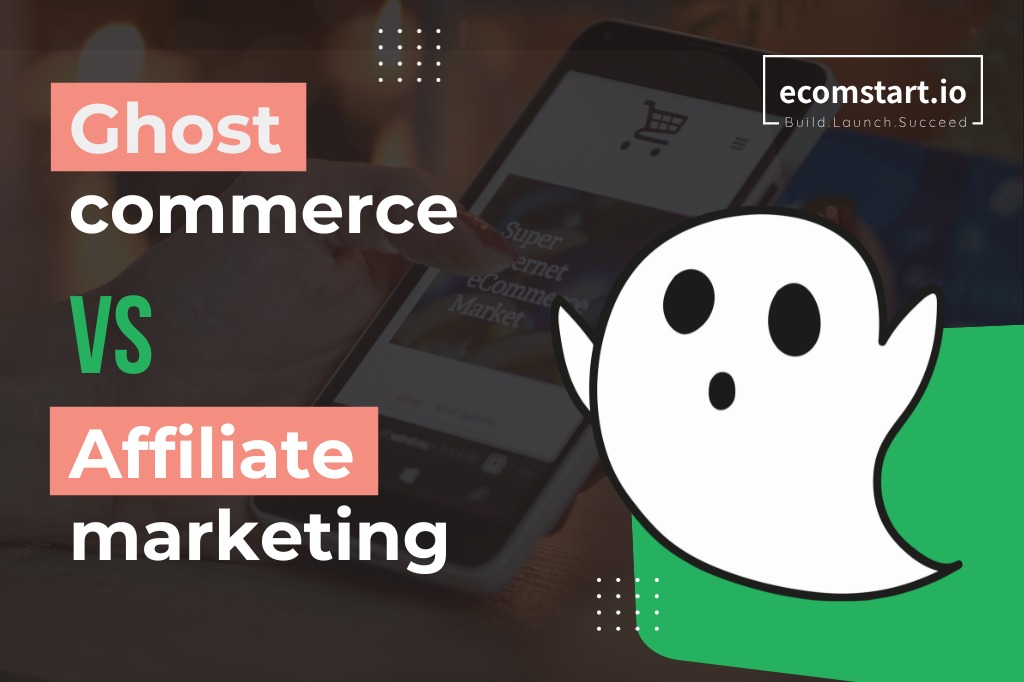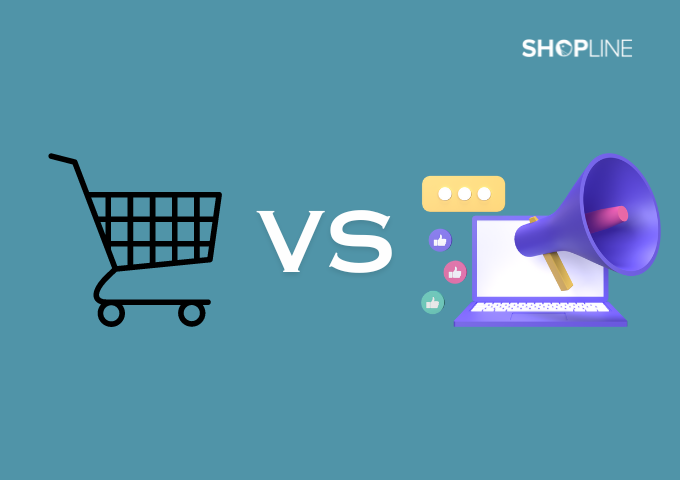Affiliate Marketing Vs. Ghost Commerce, Affiliate marketing involves promoting products for a commission, while ghost commerce involves selling products with no direct seller involvement. Both strategies utilize different methods to generate sales and increase revenue for businesses.
Affiliate marketing relies on promotional efforts to attract customers to purchase products through an affiliate link, earning a commission for successful sales. On the other hand, ghost commerce utilizes automation and technology to facilitate sales without direct seller interaction, providing a seamless and convenient experience for customers.
Understanding the variances between these two strategies can help businesses determine the most effective approach to reach their target audience and achieve their sales objectives.

Credit: www.tiktok.com
Affiliate Marketing
Affiliate marketing and ghost commerce are two different concepts. While affiliate marketing involves promoting products for a commission, ghost commerce refers to undisclosed affiliate links. It’s essential to understand the distinction and choose the approach that aligns with your goals.
Definition
Affiliate marketing is a performance-based marketing strategy where a business rewards affiliates for each customer or visitor brought by their own marketing efforts. It is a mutually beneficial arrangement that allows businesses to expand their reach and affiliates to earn a commission for driving sales or leads. Affiliate marketing creates a win-win situation for all parties involved.
Benefits
Affiliate marketing offers numerous benefits for businesses and affiliates alike. For businesses, it provides a cost-effective way to reach a larger audience and increase brand exposure. This results in higher sales and revenue, without incurring upfront marketing expenses. Affiliates, on the other hand, can earn passive income by promoting products or services they believe in, without the need to create their own products. Affiliate marketing empowers individuals to monetize their online presence and scale their earnings.
Challenges
While affiliate marketing presents various advantages, it also comes with its share of challenges. One common challenge is the management of a vast network of affiliates, each with their own unique marketing approach. This can make it difficult to maintain brand consistency and messaging across all channels. Additionally, fraudulent activities such as cookie stuffing or false advertising can tarnish the reputation of the business and the affiliate program. Affiliate marketing requires careful monitoring and management to ensure sustainable success. In summary, Affiliate marketing offers a performance-based approach to marketing that benefits businesses, affiliates, and consumers. With its cost-effective nature and the potential for passive income, it has become a popular strategy in the digital marketing landscape. However, managing a diverse network of affiliates and mitigating fraudulent activities remain ongoing challenges in the realm of affiliate marketing.

Credit: ecomstart.io
Ghost Commerce
Ghost Commerce, also known as invisible commerce or frictionless commerce, refers to the emerging trend of seamlessly integrating e-commerce capabilities into the consumer experience without the need for direct transactions. This innovative approach leverages technology to enable users to make purchases without navigating to a separate e-commerce platform. Instead, the purchasing process is seamlessly integrated into the user experience, often occurring within social media platforms, messaging apps, or even smart devices.
Definition
Ghost Commerce refers to seamlessly integrating e-commerce capabilities into the consumer experience without direct transactions. The purchasing process is integrated into the user experience, often within social media platforms or messaging apps.
Advantages
- Enhanced User Experience: Ghost Commerce streamlines the purchasing process, offering a seamless experience without the need for navigating to external websites.
- Increased Conversion Rates: By reducing friction in the purchasing process, Ghost Commerce can lead to higher conversion rates among users.
- Improved Engagement: With purchasing integrated into the user experience, brands can engage with consumers at various touchpoints, enhancing brand-consumer relationships.
Disadvantages
- Limited Customization: Integrating e-commerce into existing platforms can limit the ability to customize the purchasing experience compared to traditional e-commerce websites.
- Data Security Concerns: Ghost Commerce raises potential concerns about data security and privacy, as transactions may occur within third-party platforms.
- Lack of Brand Visibility: Without a dedicated e-commerce platform, brands may struggle to differentiate themselves and stand out in the marketplace.

Credit: m.youtube.com
Frequently Asked Questions For What Is The Difference Between Affiliate Marketing And Ghost Commerce
What Is Affiliate Marketing?
Affiliate marketing is a performance-based marketing strategy where businesses reward affiliates for each customer brought in through their marketing efforts. Affiliates promote products or services through their own channels and earn a commission for every sale made.
What Is Ghost Commerce?
Ghost commerce, also known as invisible or silent commerce, refers to the use of AI and machine learning algorithms to provide personalized shopping experiences. It involves automatically predicting and fulfilling customer needs without requiring direct input from the customer.
How Does Affiliate Marketing Work?
Affiliate marketing works by connecting businesses with individuals or companies who promote their products or services. Affiliates earn a commission when their referrals result in a sale or desired action. This type of marketing allows businesses to expand their reach and increase sales through the efforts of a larger network.
How Does Ghost Commerce Differ From Affiliate Marketing?
While both affiliate marketing and ghost commerce involve promoting products or services, they differ in their approach. Affiliate marketing relies on individuals actively promoting products, while ghost commerce utilizes AI and algorithms to automatically recommend and fulfill customer needs without direct interaction from affiliates.
Conclusion
Understanding the difference between affiliate marketing and ghost commerce is crucial for anyone looking to succeed in the online business world. While affiliate marketing relies on promoting products and earning commissions, ghost commerce involves creating and selling products without revealing one’s identity.
Both strategies offer unique advantages and challenges, and it’s important to carefully consider which approach aligns best with your goals and values. By grasping these distinctions, you can make informed decisions and leverage these strategies to drive success in your online business endeavors.




